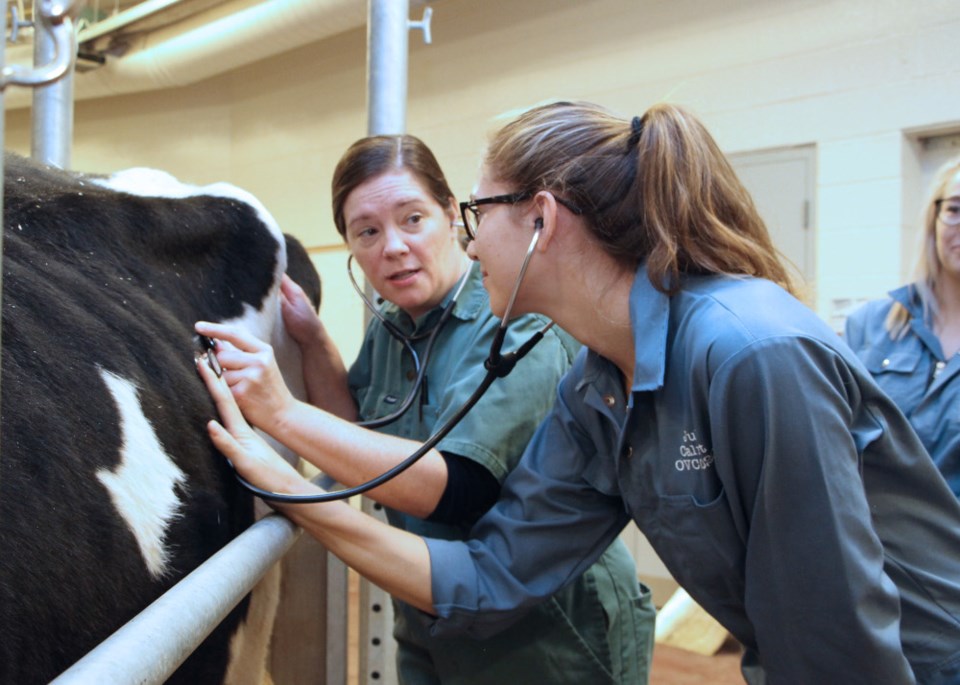The provincial budget makes a Lakehead University veterinary program one step closer to reality.
The provincial budget, which was tabled on Thursday, includes a $14.7-million commitment for Lakehead and the University of Guelph to develop a collaborative veterinary sciences program.
The government said the funding would be provided over two years, starting in 2024/2025.
Lakehead University president Moira McPherson said the proposal would have 20 students from northern Ontario accepted into the four-year program each year.
It’s a plan that the leaders of both universities have been working on for the last two years, which McPherson said provided a learning experience for the need for more veterinary professionals in the region.
“We already knew that there was a critical shortage in the north, we learned just how dire it is,” McPherson said in an interview on Friday afternoon.
“In the north, we need to have veterinarians trained for northern and rural community practice that will meet and grow the agro-food industry, as well as meet the needs of domestic pet owners.”
Accessing veterinary services has been a challenge in Thunder Bay, with many local pet owners resorting to travelling either south of the border to Minnesota or a few hours west to Dryden.
McPherson described the project as a “true collaboration” between the two universities, as well as the College of Veterinarians of Ontario.
She said the students accepted into the program would spend their first and second years at Lakehead University, before completing the final two years at the University of Guelph.
McPherson said the university would utilize best practices in recruitment and retention, implement curriculum components to ensure placements and internships are done in the north with community partners and organizations, and include a micro-credential in business to help students set up their practices in the region.
“It’s the combination of all these practices that we have lots of experience and success with that will help encourage these students to come back to practice in the north,” McPherson said.
McPherson said the funding announcement includes a “major chunk” — which she believes to be about $4.5 million — to start development of a special veterinary science training facility in Thunder Bay.
The university will pursue other funding opportunities for the facility, as well as utilize its philanthropic reach to connect with donors, to cover the rest of the cost.
“We’re very confident we’re going to be able to create the necessary facility for this program,” McPherson said.
The proposal has already earned support from municipal leaders, with Thunder Bay city council approving a $500,000-contribution from the Thunder Bay Community Economic Development Commission.
Northwestern Ontario Municipal Association president Wendy Landry is among those who have advocated for the program.
“This is not just about pets, this is about agriculture. This is about farm animals. This is about that food supply — the food safety supply,” she said.
